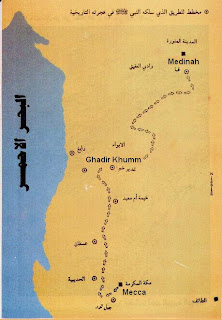Answer on distance of sun from the earth...
A man asked Imam Ali (Alaihis Salaam) in Kufa Masjid, Iraq, "What is the distance between me and (pointing towards the sun) and the sun".
It is worth mentioning here about the complexity of this question.
This man was an Arab. And in the Arabic language the numbers or count is limited up to one thousand (1000).
The count in Arabic does not exceed 1000. The answer to the question this man asked dealt in millions (distance).
It was like a challenge to Imam Ali (Alaihis Salaam) to answer him in a convincing manner without confusing him.
Imam Ali (Alaihis Salaam) answered: "If an Arab horse starts
A man asked Imam Ali (Alaihis Salaam) in Kufa Masjid, Iraq, "What is the distance between me and (pointing towards the sun) and the sun".
It is worth mentioning here about the complexity of this question.
This man was an Arab. And in the Arabic language the numbers or count is limited up to one thousand (1000).
The count in Arabic does not exceed 1000. The answer to the question this man asked dealt in millions (distance).
It was like a challenge to Imam Ali (Alaihis Salaam) to answer him in a convincing manner without confusing him.
Imam Ali (Alaihis Salaam) answered: "If an Arab horse starts
































